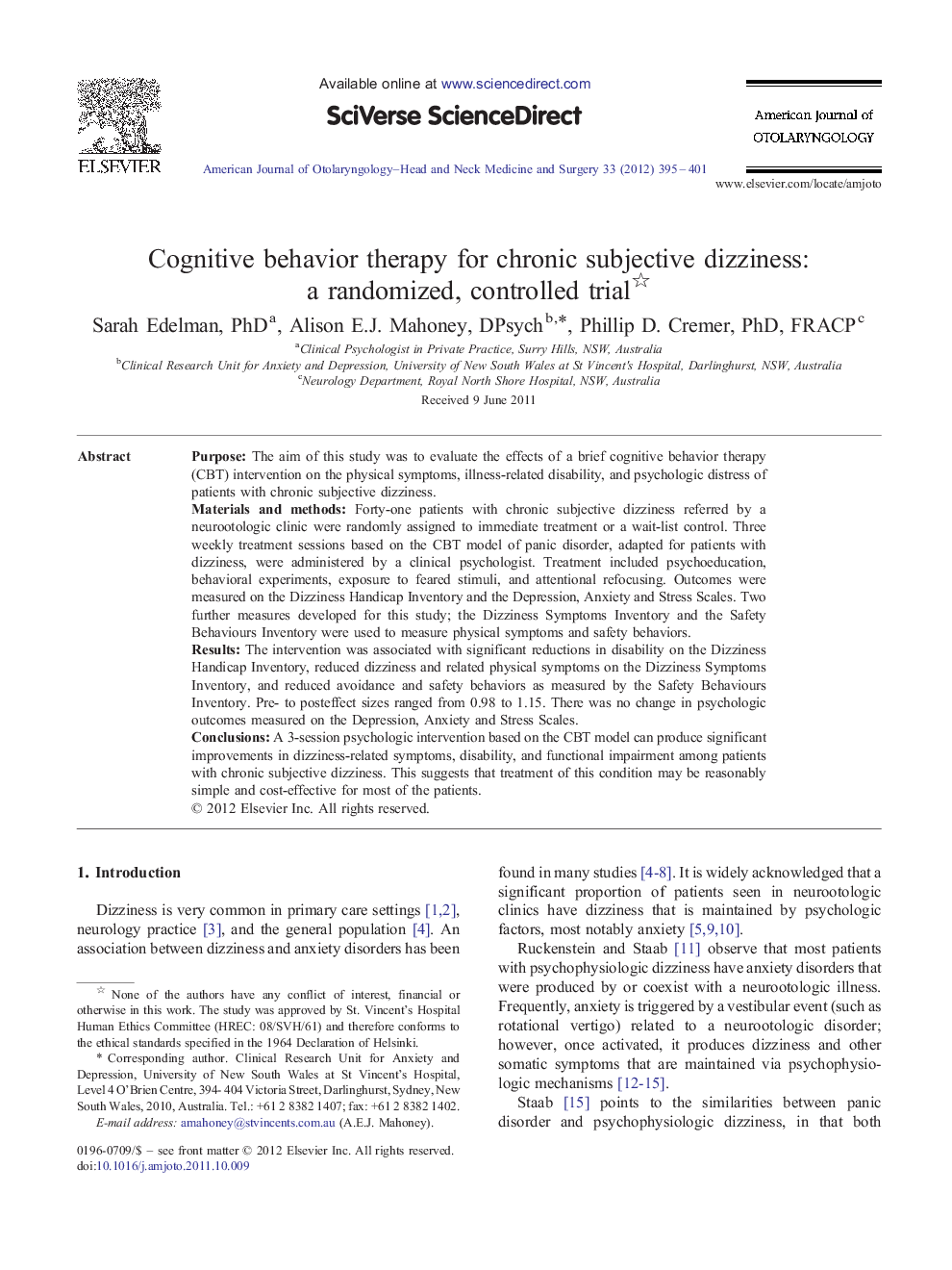| Article ID | Journal | Published Year | Pages | File Type |
|---|---|---|---|---|
| 4103932 | American Journal of Otolaryngology | 2012 | 7 Pages |
PurposeThe aim of this study was to evaluate the effects of a brief cognitive behavior therapy (CBT) intervention on the physical symptoms, illness-related disability, and psychologic distress of patients with chronic subjective dizziness.Materials and methodsForty-one patients with chronic subjective dizziness referred by a neurootologic clinic were randomly assigned to immediate treatment or a wait-list control. Three weekly treatment sessions based on the CBT model of panic disorder, adapted for patients with dizziness, were administered by a clinical psychologist. Treatment included psychoeducation, behavioral experiments, exposure to feared stimuli, and attentional refocusing. Outcomes were measured on the Dizziness Handicap Inventory and the Depression, Anxiety and Stress Scales. Two further measures developed for this study; the Dizziness Symptoms Inventory and the Safety Behaviours Inventory were used to measure physical symptoms and safety behaviors.ResultsThe intervention was associated with significant reductions in disability on the Dizziness Handicap Inventory, reduced dizziness and related physical symptoms on the Dizziness Symptoms Inventory, and reduced avoidance and safety behaviors as measured by the Safety Behaviours Inventory. Pre- to posteffect sizes ranged from 0.98 to 1.15. There was no change in psychologic outcomes measured on the Depression, Anxiety and Stress Scales.ConclusionsA 3-session psychologic intervention based on the CBT model can produce significant improvements in dizziness-related symptoms, disability, and functional impairment among patients with chronic subjective dizziness. This suggests that treatment of this condition may be reasonably simple and cost-effective for most of the patients.
